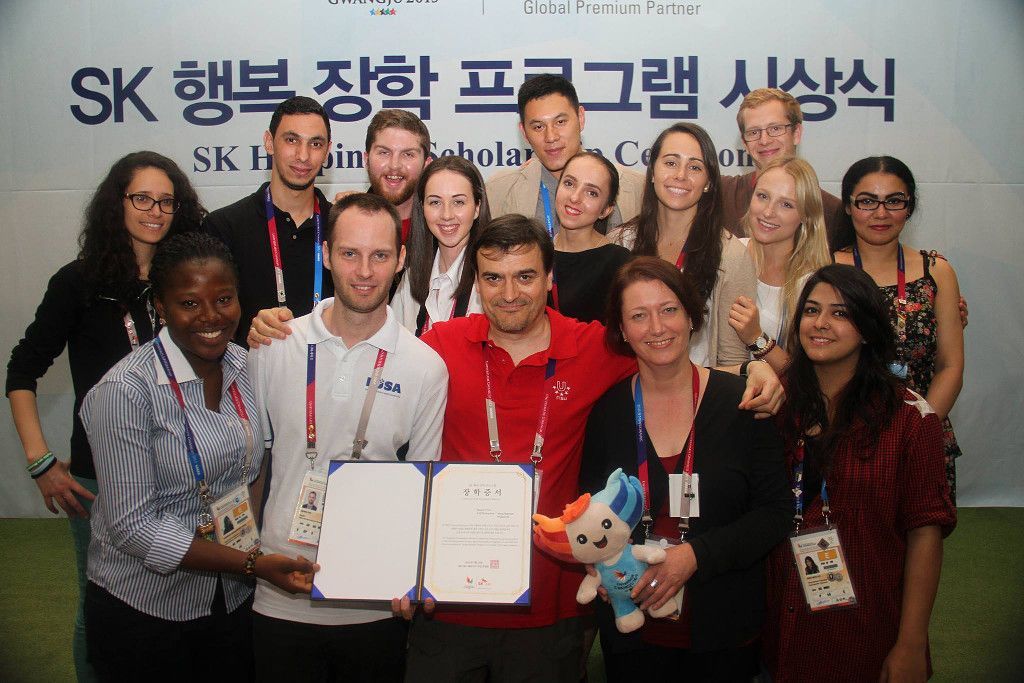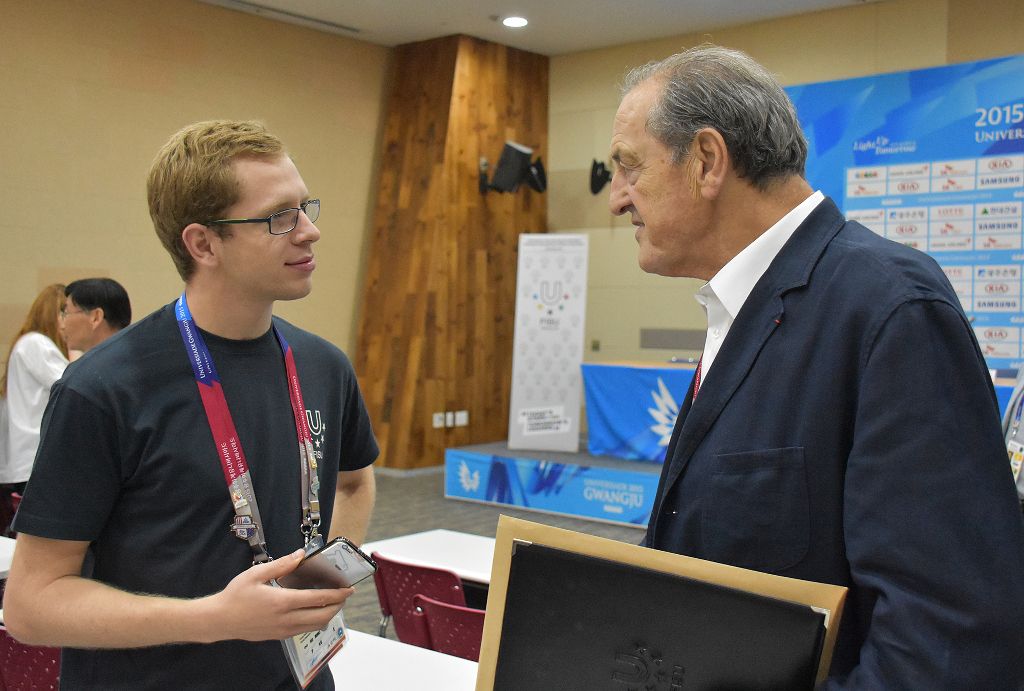What's up: Working as a journalist in university sport

This month’s student column investigates the field of media and reporting, with a special focus on young reporters and covering university sport, all through a personal experience story.
I’ve been writing about sports as long as I can remember. To me it is just a way to immerse myself in a topic that is a huge part of my life. It’s an opportunity to process what’s going on in the gyms and stadiums in my home country and, recently, around the world – for others and for myself.
One year ago I wouldn’t have been able to tell this story. A story that differentiates between just sport and university sport. I may not have realized it immediately, when I worked as a FISU Young Reporter in Korea, but three months after returning from the Gwangju Summer Universiade 2015 now I know, that the university in front of the sport makes a difference.
Without university sport in my life my focus would mainly lie on scores, records, numbers, on local or national sport and on German writing. But university sport broadened my horizon. It’s not only about numbers, but also about the people. It’s not only about local teams and athletes, but also about characters from all over the world. It’s not only about a single language, but also about a unique language everyone understands.
More than ever before I became aware of the fact that there is so much more than scoring, winning and success, more than just sport. People. Body and mind. Education. The definition of a winner goes deeper than just being the best at what you are doing. When I worked as a FISU Young Reporter I learned how to look underneath the surface. I began to see things that are not easily recognisable at first sight.
I have worked for the FISU and the ADH, the German University Sports Federation, at international competitions. What stands out about these events is the diversity created by cultural differences, the variety of disciplines and the collegiate atmosphere. For an aspiring journalist this is the perfect climate. Working with student-athletes is probably the most pleasant learning environment one can get – from student to student.
Another aspect of working at FISU, EUSA and ADH events is the opportunity to build contact with the people who work hard to enhance the future of today’s youth. Representatives of significant organisations like FISU President Claude-Louis Gallien and Wilfried Lemke, Special Adviser to the United Nations Secretary-General on Sport for Development and Peace, never tire of explaining their vision. A vision that we as young university sport reporters spread by telling the stories we discover.
Working for university sport organisations as a journalist was challenging sometimes. Deadlines, language barriers as well as the corporate vision and values demanded me to push the limits. But most of all they made me grow as a person.
Maximilian Länge is currently studying at the University of Tübingen where he is about to finish his bachelor’s degree in Sports Journalism. As a Young Reporter he worked for the FISU during the Gwangju Summer Universiade in July 2015. He also volunteered in the media department of the European Universities Championship Rowing in Hanover in September 2015.
Are you a student with an opinion? We are looking for new contributors for our student column every month. Feel free to contact stc@eusa.eu to offer a piece or propose a topic.
